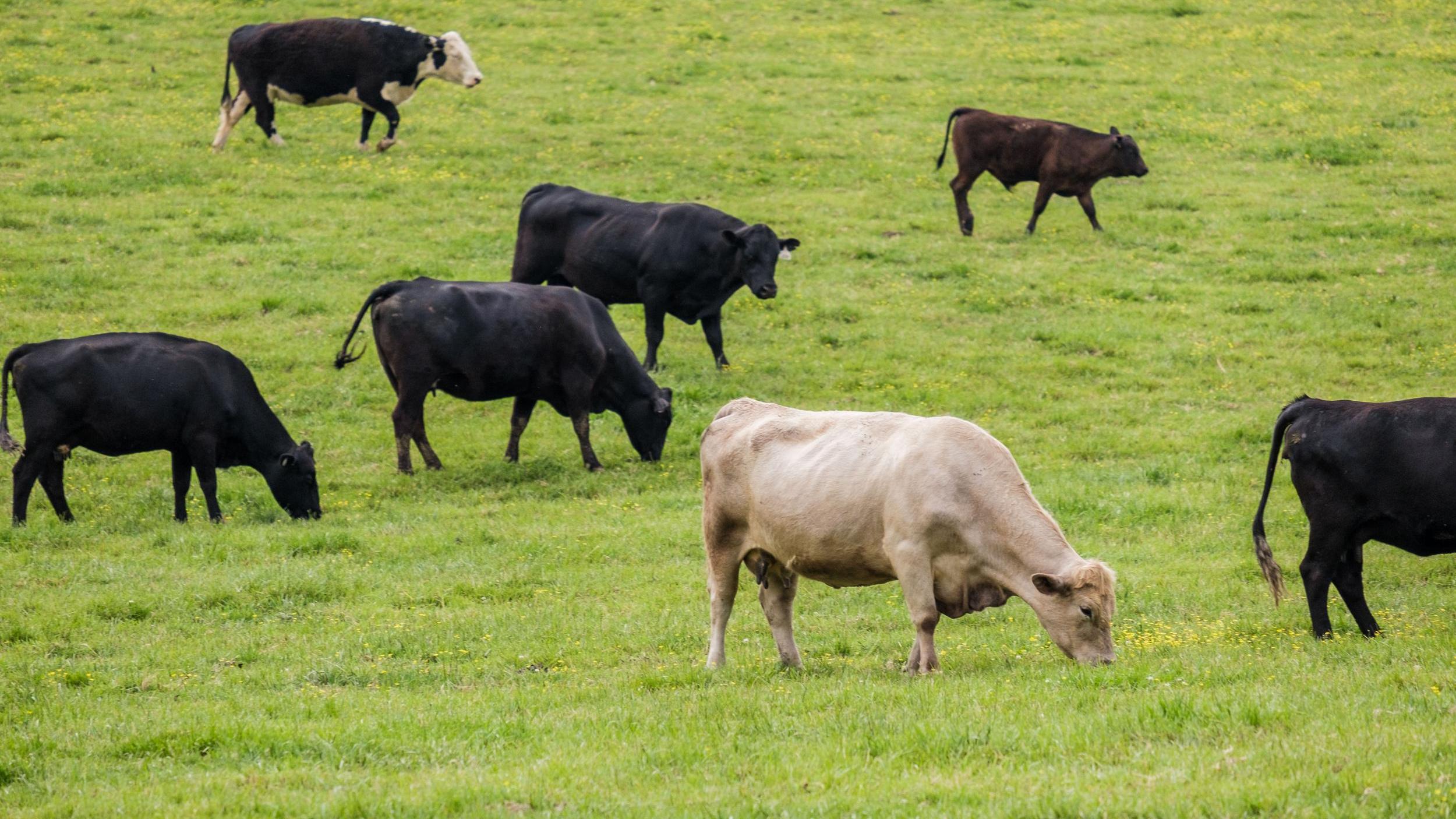UK faculty member helps transform agriculture and conservation with ruminant genome research
UK faculty member helps transform agriculture and conservation with ruminant genome research


A University of Kentucky Martin-Gatton College of Agriculture, Food and Environment (CAFE) researcher is helping enhance agricultural productivity and sustainability while supporting the conservation of endangered species.
As part of the multi-organizational Ruminant Telomere-to-Telomere Consortium (RT2T), Theodore Kalbfleisch, associate professor of veterinarian science at Martin-Gatton CAFE, is assisting the production of complete and precise genomic resources for a range of ruminant species, animals that chew cud. This includes cattle, sheep, goats and various deer species. The mapping could lead to valuable insights to improve future ruminant genetics.
Historically, studying the genetics of ruminant animals has been challenging due to missing, incomplete and/or fragmented reference genome sequences. These limitations have impeded a comprehensive understanding of genetic traits and behaviors across the ruminant phylogenetic group. However, the RT2T project, leveraging cutting-edge sequencing technologies and collaborative expertise, aims to provide a foundation that will eliminate many of these barriers.
"By achieving a complete understanding of the genome structure of these animals, we can unlock new ways to enhance breed quality, disease resistance and overall productivity,” Kalbfleisch said. “These are crucial for the sustainability of the agricultural sector."
The project, published in Nature Genetics, describes how the worldwide team of collaborators will leverage advanced sequencing technologies to analyze the genomes of ruminant species. These methods provide a comprehensive view of the genome, including previously hard-to-sequence regions like centromeres and telomeres (key structures within chromosomes, each playing crucial roles in cell division and maintaining genetic stability), thus offering a complete genetic blueprint of these animals.
"Complete and accurate genomic information allows us to pinpoint specific traits and genetic variations beneficial for agricultural practices, such as improved milk production in dairy animals or enhanced wool quality in species that produce fiber," Kalbfleisch said.
RT2T also embraces an open science model, ensuring that the data and results produced are freely accessible to the global research community. This approach advances collaboration, derives input and guidance from diverse perspectives, and encourages the engaged participation necessary to accelerate scientific discoveries and drive innovation in agricultural research. This collaborative method enables applications such as improving breeding practices and enhancing conservation efforts. Scientists worldwide can access this data to conduct further studies, thereby fostering innovations that could reshape farming practices and animal breeding.
"The open collaboration model allows researchers from around the world to contribute to and benefit from this massive pool of genetic information," Kalbfleisch said. "It benefits scientific advancements and ensures they have a broad and lasting impact."
Applications in conservation and biodiversity management
In addition to agricultural benefits, the comprehensive genome data produced by the RT2T can play a critical role in conservation efforts. High-quality genomic information is essential for managing the genetic diversity of endangered ruminant species and developing strategies to improve their populations' survival chances.
"Understanding the complete genome helps us identify genetic vulnerabilities and strengths within populations, which is crucial for effective conservation planning," Kalbfleisch said. “This aspect of the research is vital for maintaining biodiversity and ecological balance, especially in regions where ruminants are integral to the ecosystem.
The future of genomic research in agriculture
As the RT2T project advances, UK Martin-Gatton CAFE plays a pivotal role in interpreting the extensive data generated, extracting valuable insights that drive advancements in genomic research and inform practical applications in agriculture and conservation. This research is anticipated to yield insights into the evolutionary biology of ruminants, informing targeted breeding programs that enhance livestock resilience and productivity. By understanding the genetic history of ruminants, breeders can implement strategies to conserve valuable traits and adapt to changing environmental conditions.
“Looking ahead, this research's implications for the agricultural sector are significant,” Kalbfleisch said. “It could potentially revolutionize livestock management practices and conservation efforts. Farmers and breeders will have access to powerful genetic tools that can inform breeding decisions, leading to healthier and more productive livestock.”
This material is based upon work that is supported by the National Institute of Food and Agriculture, U.S. Department of Agriculture, under award number 2023-67015-39000. Any opinions, findings, conclusions or recommendations expressed in this publication are those of the author(s) and do not necessarily reflect the view of the Department of Agriculture.
###
Writer: Jordan Strickler, jstrickler@uky.edu
The Martin-Gatton College of Agriculture, Food and Environment is an Equal Opportunity Organization with respect to education and employment and authorization to provide research, education information and other services only to individuals and institutions that function without regard to economic or social status and will not discriminate on the basis of race, color, ethnic origin, national origin, creed, religion, political belief, sex, sexual orientation, gender identity, gender expression, pregnancy, marital status, genetic information, age, veteran status, physical or mental disability or reprisal or retaliation for prior civil rights activity.
Ag Equine Programs Veterinary Science
